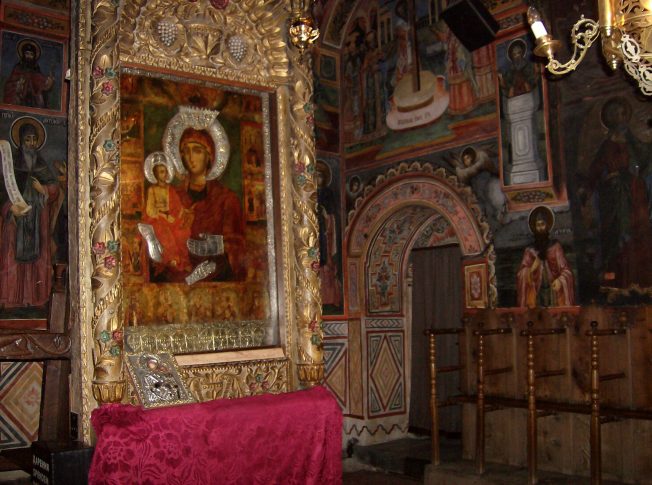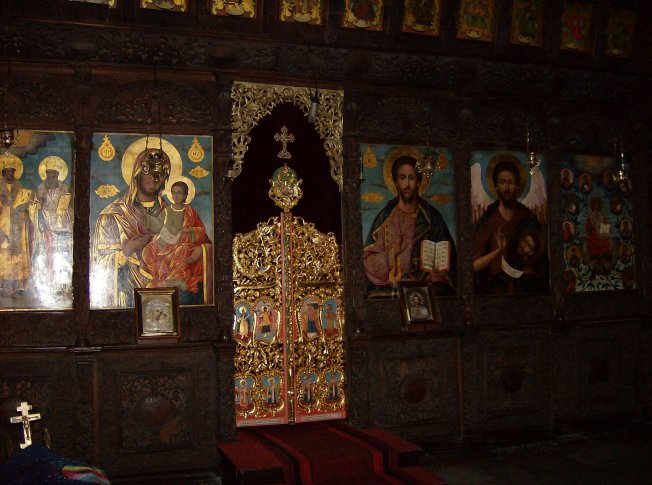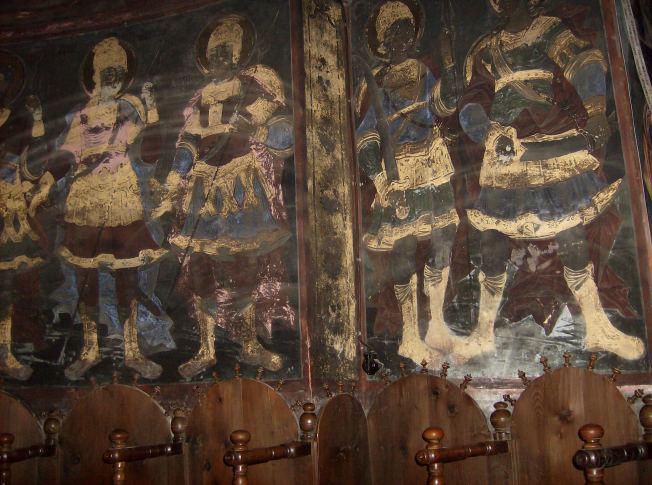 Orthodox Christians celebrate Pascha according to the Easter date in the Julian calendar. Pascha is the most important event in the church calendar in the Orthodox Church. Many Orthodox Christians attend church liturgies during the Holy Week that leads up to Easter Sunday. The Easter Sunday church liturgy is joyous as it celebrates Jesus Christ’s resurrection, as told in the Christian bible.
Orthodox Christians celebrate Pascha according to the Easter date in the Julian calendar. Pascha is the most important event in the church calendar in the Orthodox Church. Many Orthodox Christians attend church liturgies during the Holy Week that leads up to Easter Sunday. The Easter Sunday church liturgy is joyous as it celebrates Jesus Christ’s resurrection, as told in the Christian bible.
The period before Easter, known as Lent, is also a time of strict fasting. Orthodox Christians observe this fasting ritual before celebrating Easter Sunday with a feast, where meat and dairy products can be eaten again. Another tr
adition observed in Orthodox Christian churches is the blessing of food baskets. The baskets are usually filled with bread, cheese, meat, eggs, butter, salt, and other types of food used for Paschal celebrations.
One of the most common questions Orthodox Christians are asked is, why Orthodox Christians don’t celebrate Easter/Holy Pascha with everyone else?

Often, those asking are Orthodox Christians who know that some years we do have the same Easter observance, others we don’t, so why don’t we celebrate the feast of feasts of the Christian year with other Christians?
The answer to the question is found in two areas of human life that are among the least popular — mathematics and history.
Clearly, for both Western and Eastern Orthodox Christians, the date of the feast differs from year to year. That’s because we use a different calculus for determining the date. So here is where most people say, “OK, I get it, you differ, I guess you have your reasons.” But those who are not math-phobic press on to ask why we have a different calculus, and how the calculus is different for East and West.
These names, dates and events are not quite in a galaxy far, far away, but to many it seems that way. Quartodecimians, Nicea I, Antioch, Alexandria, Jerusalem, Rome, Athanasius, Constantine, 325, for starters, only serve to either glaze over the eyes or scramble the brain. Unless some of those names and dates bring out the response, “That was in ‘The Da Vinci Code.’ “ Dan Brown’s novel is not a reliable or recommended source for this question. The best place to start is with what Christians have in common when it comes to Easter/Holy Pascha, which puts the difference in the date of the celebration in its proper perspective. All of us celebrate on a Sunday, the first day of the week, since that is when the gospels tell us Christ rose from the dead. This itself was a disputed issue resolved at the First Council of Nicea in 325 AD.
The best place to start is with what Christians have in common when it comes to Easter/Holy Pascha, which puts the difference in the date of the celebration in its proper perspective. All of us celebrate on a Sunday, the first day of the week, since that is when the gospels tell us Christ rose from the dead. This itself was a disputed issue resolved at the First Council of Nicea in 325 AD.
The alternative was a date that occurred on a different day every year, and that day was the date of Passover according to the lunar calendar followed by the Jewish people at the time of Jesus’ death and resurrection. Subsequent modifications to the Jewish calendar resulted in the Council of Nicea decreeing that the calculation of the date of Pascha and of Passover were independent of each other. Sunday is the day on which the resurrection occurred, and as the first day it is understood by Christians as the beginning of the New Creation, the day without end, the eighth day.
But the issue remained, how to calculate which Sunday, a task given to the Church in Alexandria, which was renowned for its astronomers. The astronomers of Alexandria came up with a table of cycles of 19 years upon which the date of Pascha was determined, factoring in the full moon after the vernal equinox. Those dates were calculated according to the Julian calendar used at the time. Later, the West adopted a table of cycles that had 84 years.
While all the Christian world initially shared one calendar and shared one date for the celebration, the change to the Gregorian calendar in the West in the late 16th century, and the continuing use of the Julian calendar in the East, resulted in an initial difference of 11 days between the two, a difference which is now 13 days. Further complicating this was the date on which the vernal equinox was established in the Alexandrian table, a fixed date that was recognized as inaccurate on a yearly basis, but established as a base line for calculations.
The decisions made at the Council of Nicea in 325 were made to guarantee a universal celebration of the greatest feast on the Christian calendar by all Christians. This goal is recognized today as one we need to recover. Steps in that direction were taken in 1997 at a meeting of representatives of the Christian Churches held in Aleppo, Syria.
Further discussions have been broached between the Roman Catholic Church and the Ecumenical Patriarchate. This year, the Latin Patriarchate of Jerusalem, covering most of the Holy Land, Cyprus and Jordan, will celebrate with their Orthodox brethren, and have requested papal approval to do this permanently.
More than any text or meeting, this provides a common witness and a great hope that all — Orthodox, Roman Catholic and Protestant Christians of all denominations — can celebrate the cause of our hope and the foundation of our faith together, with at least some of the unity for which Christ prayed before His arrest: that all may be one.